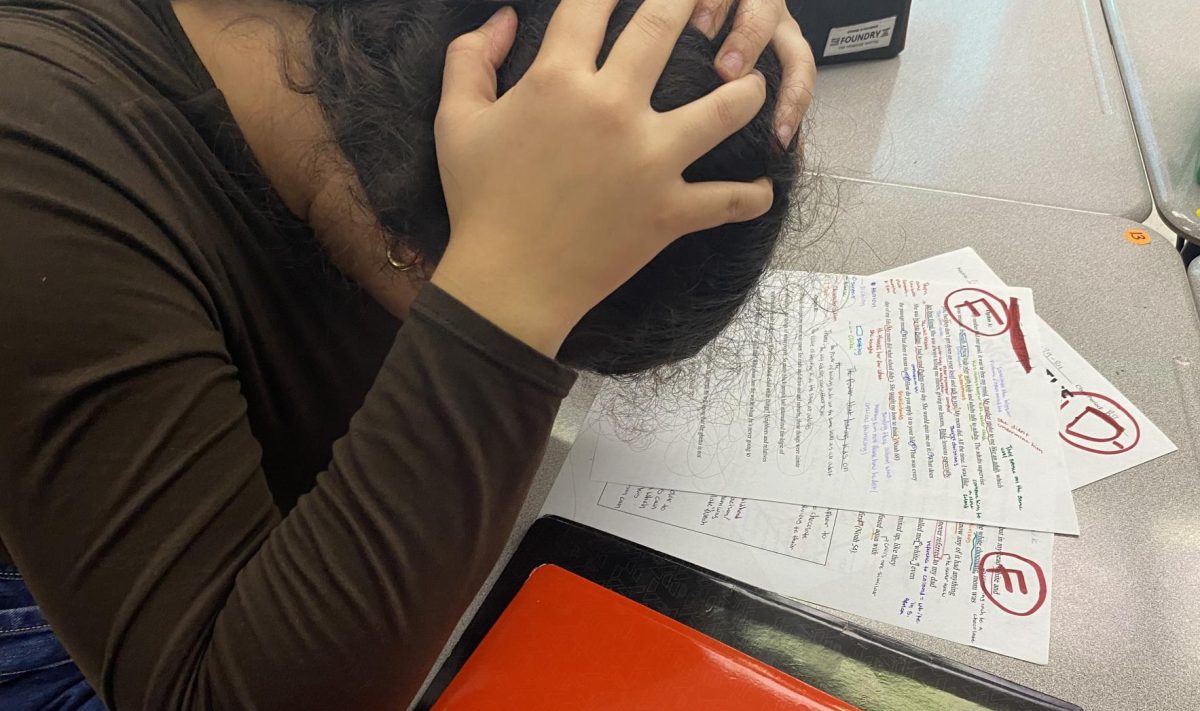When a typical high-school student sits down to start his or her homework, they will most likely be doing so in front of a computer. They get their work out in an attempt to get it done so they can go to sleep early, but get sucked into social networking sites such as Facebook or Twitter.
Before the popular use of social networking sites, it was still likely that students would stay up late and become sleep deprived, however many students today blame their sleeping habits and procrastination on sites such as Facebook. “I waste time on Facebook because of the social aspects, the face parts. I see all these faces and I want to talk to them, interact with the people of my generation,” said senior Kamin Horvath.
Two of the major negative effects of social networking sites on high school students are concentration and procrastination. Many students are spending too much time on Facebook, breezing through their friends profiles and pictures, instead of working on their homework after school.
The Internet is also severely decreasing people’s ability to concentrate. The constant scanning and skimming that is used takes away from a person’s natural ability to think deeply for sustained periods of time. For example, if a student was working on a research paper, he or she would start out looking up something to do with their topic, but gradually stray from that and begin to look at other sites until the research project was completely out of his or her head.
A growing number of teachers have come out and denounced the Internet for its effect on students, blaming it for not only the poor levels of concentration but also for lower grades received.
Just by looking at the basic set up of Facebook, it is easy to see how it is blamed for student procrastination. With its constant updates, newsfeed feature where anyone can see what their friends are doing and its easy to use functions, anyone could find their work time interrupted or filled with Facebook time.
However, Facebook can also be used as a helping tool for homework. Students can easily access each other to know what homework assignments are, and catch up on missed assignments. Also, Facebook can be used as a great study tool to unite groups of people in a common class to share information. “I think [social network sites] can be helpful because the students can start study groups. However, it might take away from them doing their own work,” said history teacher Jonathan York.
According to Facebook’s “Press Room,” over 500 million people use Facebook and over 700 billion minutes are spent by these users on Facebook per month, adding up to a grand total of roughly 1.3 millions years spent on Facebook by the human population in a month.
Another great time consumer is the popular site Twitter. While fewer people use Twitter, roughly 175 million according to Twitter’s website, around 95 million tweets are written per day. AHS sophomore Jessica Campanilla uses her Twitter feed regularly to follow her friends and favorite celebrities.
“Being on Twitter is better than being on Facebook,” she said. “Twitter lets me follow the celebrities I like, and tells me what they’re up to and what they’re thinking. I can also follow my friends that live out of state and my sister in college. It’s way better than changing your status 24/7 on Facebook. That gets annoying.”
Not all students are as enamored with sites like Facebook as the statistics would make one think. “I keep waiting for it to end. It’s like a fad, just like Xanga,” said senior Caroline Kane.
Generally speaking, high school students now, even compared to high schoolers from five years ago, are fairly consumed with using social networking sites. They are easy to use and easy to distract, causing them to effect a students’ schoolwork. According to MSNBC, people ages 13-24 spend an average of 16.7 hours a week online. Social networking can be fun and interesting, but it sure takes up a whole lot of time.








